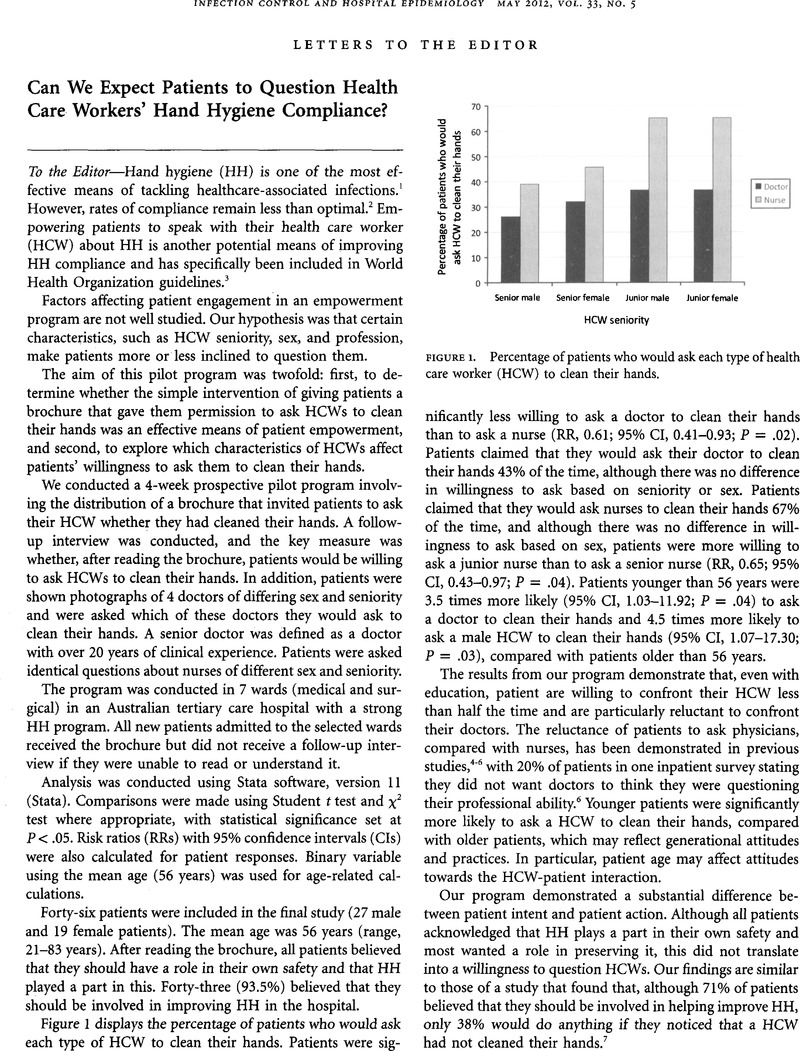Crossref Citations
This article has been cited by the following publications. This list is generated based on data provided by Crossref.
McGuckin, M.
and
Govednik, J.
2013.
Patient empowerment and hand hygiene, 1997–2012.
Journal of Hospital Infection,
Vol. 84,
Issue. 3,
p.
191.
Buser, Genevieve L.
Fisher, Brian T.
Shea, Judy A.
and
Coffin, Susan E.
2013.
Parent willingness to remind health care workers to perform hand hygiene.
American Journal of Infection Control,
Vol. 41,
Issue. 6,
p.
492.
Jarrin Tejada, Claudia
and
Bearman, Gonzalo
2015.
Hand Hygiene Compliance Monitoring: the State of the Art.
Current Infectious Disease Reports,
Vol. 17,
Issue. 4,
Kim, Min-Kyung
Nam, Eun Young
Na, Sun Hee
Shin, Myoung-jin
Lee, Hyun Sook
Kim, Nak-Hyun
Kim, Chung-Jong
Song, Kyoung-Ho
Choe, Pyoeng Gyun
Park, Wan Beom
Bang, Ji-Hwan
Kim, Eu Suk
Park, Sang Won
Kim, Nam Joong
Oh, Myoung-don
and
Kim, Hong Bin
2015.
Discrepancy in perceptions regarding patient participation in hand hygiene between patients and health care workers.
American Journal of Infection Control,
Vol. 43,
Issue. 5,
p.
510.
Stewardson, Andrew James
Sax, Hugo
Gayet-Ageron, Angèle
Touveneau, Sylvie
Longtin, Yves
Zingg, Walter
and
Pittet, Didier
2016.
Enhanced performance feedback and patient participation to improve hand hygiene compliance of health-care workers in the setting of established multimodal promotion: a single-centre, cluster randomised controlled trial.
The Lancet Infectious Diseases,
Vol. 16,
Issue. 12,
p.
1345.
Longtin, Yves
Sheridan, Susan E.
and
McGuckin, Maryanne
2017.
Hand Hygiene.
p.
206.
Butenko, Samantha
Lockwood, Craig
and
McArthur, Alexa
2017.
Patient experiences of partnering with healthcare professionals for hand hygiene compliance: a systematic review.
JBI Database of Systematic Reviews and Implementation Reports,
Vol. 15,
Issue. 6,
p.
1645.



